
[xyz-ihs snippet="NavigationLinksBlock-Common"]
The Last Unicorn
by Jimmy Webb
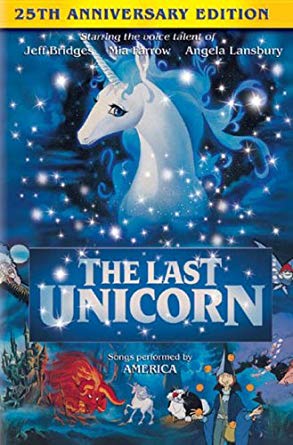
The "The Last Unicorn" is a 1982 soundtrack album composed and arranged by Jimmy Webb, and performed by America (American rock band that was formed in London in 1970 by Dewey Bunnell, Dan Peek, and Gerry Beckley) with the London Symphony Orchestra.
The album contains the film score for the 1982 film The Last Unicorn, which was based on novel by Peter S. Beagle.
[video width="640" height="360" mp4="https://www.easypianoonline.com/wp-content/uploads/2019/05/TheLastUnicorn.mp4"]
Lyrics
When the last eagle flies over the last crumbling mountain
And the last lion roars at the last dusty fountain
In the shadow of the forest though she may be old and worn
They will stare unbelieving at the last unicorn
When the first breath of winter through the flowers is icing
And you look to the north and a pale moon is rising
And it seems like all is dying and would leave the world to mourn
In the distance hear the laughter of the last unicorn
I'm alive, I'm alive
When the last moon is cast over the last star of morning
And the future has passed without even a last desperate warning
Then look into the sky where through the clouds a path is torn
Look and see her how she sparkles, it's the last unicorn
I'm alive, I'm alive
Songwriters: Jimmy Webb

[xyz-ihs snippet="NavigationLinksBlock-Common"]
No One Knows
Who I Am
by Frank Wildhorn
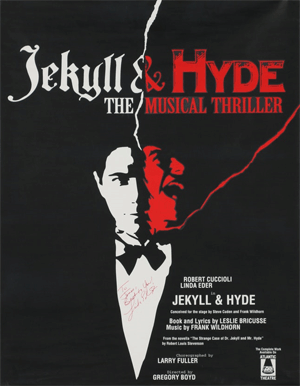
The "No One Knows Who I Am " is a song from Jekyll & Hyde - a musical horror-drama loosely based on the novella Strange Case of Dr Jekyll and Mr Hyde by Robert Louis Stevenson. Originally conceived for the stage by Frank Wildhorn and Steve Cuden, it features music by Wildhorn, a book by Leslie Bricusse and lyrics by Wildhorn, Bricusse and Cuden.
After a world premiere run in Houston, Texas, the musical embarked on a national tour of the United States prior to its Broadway debut in 1997. Many international productions in various languages have since been staged including two subsequent North American tours, two tours in the United Kingdom, a concert version and re-vamped US tour in 2012 ahead of a 2013 Broadway revival.
[video width="640" height="360" mp4="https://www.easypianoonline.com/wp-content/uploads/2019/05/NoOneKnowsWhoIAm.mp4"]
Lyrics
Look at me and tell me who I am,
Why I am, what I am.
Call me a fool and it's true I am,
I don't know who I am.
It's such a shame,
I'm such a sham.
No one knows who I am.
Once there were sweet possibilities,
I could see, just for me.
Now all my dreams are just memories,
Fated never to be.
Time's not a friend, hurrying by.
I wonder who am I?
Am I the face of the future?
Am I the face of the past?
Am I the one who must finish last?
Look at me and tell me who I am,
Why I am, what I am.
Will I survive?
Who will give a damn,
If no one knows who I am?
Nobody knows,
Not even you,
No one knows who I am
Songwriters: Leslie Bricusse / Frank N. Wildhorn

[xyz-ihs snippet="NavigationLinksBlock-Common"]
Somewhere My Love
Lara's Theme
from Doctor Zhivago
by Maurice Jarre
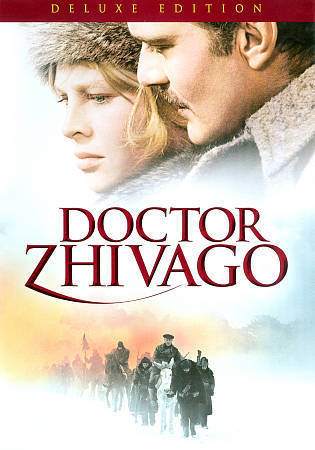
The "Doctor Zhivago (Italian: Il dottor Živago)" is a 1965 British-Italian epic romantic drama film directed by David Lean. It is set in Russia between the years prior to World War I and the Russian Civil War of 1917–1922, and is based on the 1957 Boris Pasternak novel Doctor Zhivago. While immensely popular in the West, the book was banned in the Soviet Union for decades. For this reason, the film could not be made in the Soviet Union and was instead filmed mostly in Spain.
The film stars Omar Sharif in the title role as Yuri Zhivago, a married physician whose life is irreversibly altered by the Russian Revolution and subsequent Civil War, and Julie Christie as his married love interest Lara Antipova. The supporting cast includes Geraldine Chaplin, Rod Steiger, Alec Guinness, Tom Courtenay, Ralph Richardson, Siobhán McKenna and Rita Tushingham.
[video width="640" height="360" mp4="https://www.easypianoonline.com/wp-content/uploads/2019/05/SomewhereMyLove.mp4"]
Lyrics
Somewhere, my love there will be songs to sing
Although the snow covers the hope of spring
Somewhere a hill blossoms in green and gold
And there are dreams all that your heart can hold
Someday we'll meet again my love
Someday whenever the spring breaks through
You'll come to me out of the long ago
Warm as the wind, soft as the kiss of snow
Lara my own, think of me now and then
God speed my love till you are mine again
You'll come to me out of the long ago
Warm as the wind soft as the kiss of snow
Till then my sweet think of me now and then
God speed my love 'til you are mine again
Songwriters: Maurice Jarre / Paul Francis Webster

[xyz-ihs snippet="NavigationLinksBlock-Common"]
Fur Elise
Section B
by Ludwig van Beethoven
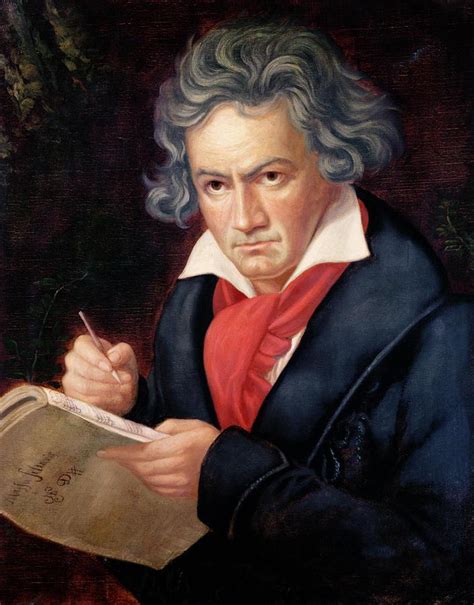
Section A of the tutorial can be reached at the link below:
Section C of the tutorial can be reached at the link below:

Everyone knows the melody to Ludwig van Beethoven's piano piece " Fur Elise ", but Elise's true identity has remained a mystery. Now a German musicologist says he's discovered who she really was.
Who was she?
Was she a real person?
Was she imaginary person?
Or maybe she was "virtual"?
Anyhow from hard rock and jazz to cabaret and ring tones, "Fur Elise" is the quintessential example of the popularization of classical music. If Beethoven got royalties, he'd be a wealthy man.
Everyone knows the melody to the short piano piece in A Minor. Though few stop to wonder what was behind the intimate dedication.
Berlin musicologist Klaus Martin Kopitz believes he has uncovered Elise's true identity.
"For years, I've been working on a publication called 'Beethoven in the eyes of his contemporaries', which includes all the reports from people who knew Beethoven personally: journals, letters, poems, memories," said Kopitz. "Certain women are mentioned, and one of them was Elisabeth Roeckel."
[video width="640" height="360" mp4="https://www.easypianoonline.com/wp-content/uploads/2020/12/Fur-Elise.mp4"]

[xyz-ihs snippet="NavigationLinksBlock-Common"]
March Militaire
by Franz Schubert
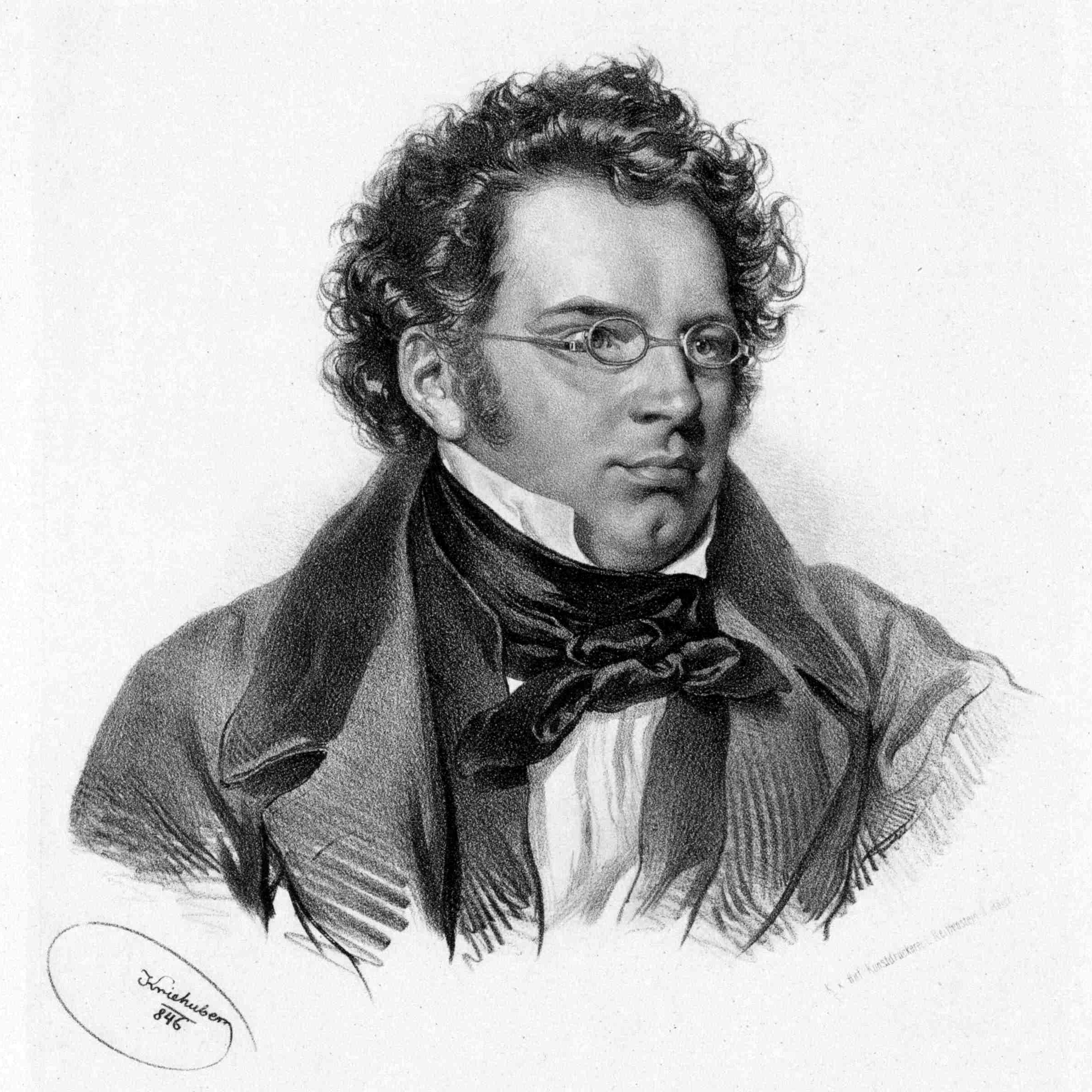 Franz Schubert
Franz Schubert
The "March Militaire (Military March)" is the first of the Three Marches Militaires, Op. 51, D. 733, are pieces in march form written for piano four-hands by Franz Schubert. It is far more famous than the others and is one of Schubert's most famous compositions, and it is often simply referred to as "Schubert's Marche militaire".
It is not certain when the Marches militaires were written: many scholars favour 1818 but some prefer alternative dates such as 1822 or 1824. It is known that they were written during Schubert's stay at Count Johann Karl Esterházy's summer home in Zseliz in Hungary (this is now Želiezovce in Slovakia). He had accepted a job there as music teacher to the Count's daughters, and these and similar works were written for instructional purposes.
The Marches militaires were published in Vienna on 7 August 1826, as Op. 51, by Anton Diabelli.
They are all in ternary form, with a central trio leading to a reprise of the main march.
[video width="640" height="360" mp4="https://www.easypianoonline.com/wp-content/uploads/2020/12/Franz-Schubert-Military-March.mp4"]

[xyz-ihs snippet="NavigationLinksBlock-Common"]
You've Got a Friend in Me
by Randy Newman
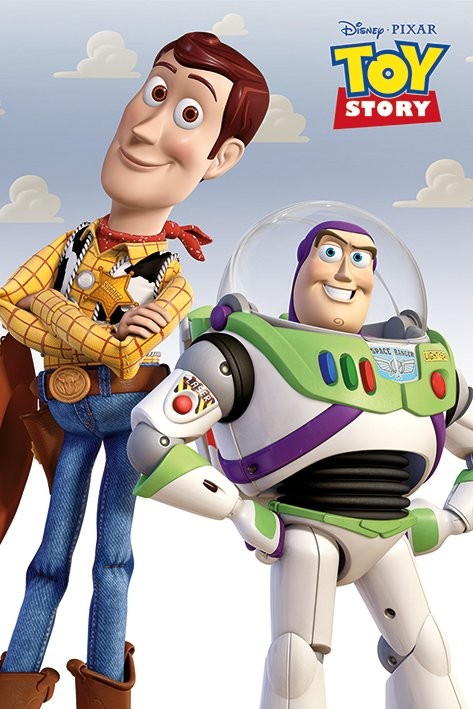
The "You've Got a Friend in Me " is a song by Randy Newman. Used as the theme song for the 1995 Disney/Pixar animated film Toy Story, it has since become a major musical component for its sequels, Toy Story 2 (1999) and Toy Story 3 (2010) as well as a musical leitmotif throughout the whole Toy Story franchise. The song was nominated for both the Academy Award for Best Original Song and the Golden Globe Award for Best Original Song, but lost both to "Colors of the Wind" from Disney's Pocahontas.
Like many other Disney theme songs, "You've Got a Friend in Me" has been covered numerous times. Cover versions featured in the three Toy Story films include a duet with Newman and Lyle Lovett in Toy Story; a diegetic instance by Tom Hanks, a version by Robert Goulet and an instrumental by Tom Scott in Toy Story 2, and a Spanish language version by the Gipsy Kings in Toy Story 3.
[video width="640" height="360" mp4="https://www.easypianoonline.com/wp-content/uploads/2019/04/YouveGotAFriendInMe.mp4"]
Lyrics
You've got a friend in me
You've got a friend in me
When the road looks rough ahead
And you're miles and miles
From your nice warm bed
You just remember what your old pal said
Boy, you've got a friend in me
Yeah, you've got a friend in me
You've got a friend in me
You've got a friend in me
You've got troubles, and I've got 'em too
There isn't anything I wouldn't do for you
We stick together and can see it through
'Cause you've got a friend in me
You've got a friend in me
Some other folks might be
A little bit smarter than I am
Bigger and stronger too, maybe
But none of them will ever love you
The way I do, it's me and you, boy
And as the years go by
Our friendship will never die
You're gonna see it's our destiny
You've got a friend in me
You've got a friend in me
You've got a friend in me

[xyz-ihs snippet="NavigationLinksBlock-Common"]
La Donna È Mobile
from opera Rigoletto
by Giuseppe Verdi
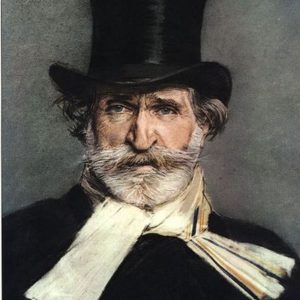 Giuseppe Verdi
Giuseppe Verdi
The ""La Donna È Mobile" (pronounced [la ˈdɔnna ˌɛ mˈmɔːbile]; "Woman is fickle") " is the Duke of Mantua's canzone from the beginning of act 3 of Giuseppe Verdi's opera Rigoletto (1851). The canzone is famous as a showcase for tenors. Raffaele Mirate's performance of the bravura aria at the opera's 1851 premiere was hailed as the highlight of the evening. Before the opera's first public performance (in Venice), the song was rehearsed under tight secrecy: a necessary precaution, as "La donna è mobile" proved to be incredibly catchy, and soon after the song's first public performance it became popular to sing among Venetian gondoliers.As the opera progresses, the reprise of the tune in the following scenes contributes to Rigoletto's confusion as he realizes from the sound of the Duke's lively voice coming from the tavern (offstage), that the body in the sack over which he had grimly triumphed, was not that of the Duke after all: Rigoletto had paid Sparafucile, an assassin, to kill the Duke, but Sparafucile had deceived Rigoletto by indiscriminately killing Gilda, Rigoletto's beloved daughter, instead.
[video width="640" height="360" mp4="https://www.easypianoonline.com/wp-content/uploads/2019/04/La_Donna_È_Mobile_Rigoletto_Luciano_Pavarotti.mp4"]
Luciano Pavarotti
Lyrics (Italian)
La donna è mobile
La donna è mobile.
Qual piuma al vento,
muta d'accento e di pensiero.
Sempre un amabile,
leggiadro viso,
in pianto o in riso, è menzognero.
[Ritornello:]
La donna è mobil.
Qual piuma al vento,
muta d'accento e di pensier!
e di pensier!
e di pensier!
È sempre misero
chi a lei s’affida,
chi le confida mal cauto il cuore!
Pur mai non sentesi
felice appieno
chi su quel seno non liba amore!
[Ritornello:]
La donna è mobil
Qual piuma al vento,
muta d'accento e di pensier!
e di pensier!
e di pensier!
Lyrics (English translation)
Women are Changeable
Like a feather in the wind,
Their tone changes, as do their minds.
Always an endearing,
elegant face,
whether in tears or laughter: It's deceitful
[Refrain:]
Women are changeable
Like a feather in the wind
Their tone changes...as do their minds!
As do their minds!
As do their minds!
He's always miserable,
the one who puts his trust in them
who confides in them his unwary heart!
Yet he would never feel
completely happy
He who from this breast, does not imbibe love.
[Refrain]

[xyz-ihs snippet="NavigationLinksBlock-Common"]
Shallow
from A Star Is Born
by Lady Gaga
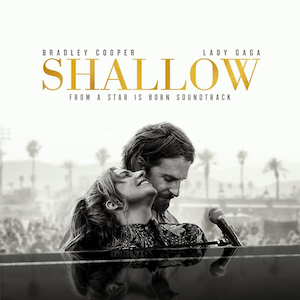
The "Shallow" is a song performed by American singer Lady Gaga and American actor and filmmaker Bradley Cooper. It was released through Interscope Records on September 27, 2018 as the lead single from the soundtrack of the 2018 musical drama film, A Star Is Born (2018). "Shallow" was written by Gaga with Andrew Wyatt, Anthony Rossomando and Mark Ronson, and produced by Gaga with Benjamin Rice. The song is heard three times throughout the film, most prominently during a sequence when Cooper's character Jackson Maine invites Gaga's character Ally to perform it onstage with him. The scene was filmed in front of a live audience at the Greek Theater in Los Angeles, California.
"Shallow" is a pivotal moment in A Star Is Born, since it speaks about Ally and Jackson's conversations. Gaga wrote it from Ally's point of view with the self-aware lyrics asking each other if they are content being who they are. A country and folk pop power ballad, the song finds Gaga and Cooper trading verses and gradually moves toward the final chorus with a vocal run by Gaga. The recording is interspersed with the sound of audience noise and applause. Gaga premiered it on DJ Zane Lowe's Beats 1 radio show while giving an interview about the film. An accompanying music video was also released, showing both Cooper and Gaga's characters singing "Shallow" together onstage, interspersed with scenes from A Star Is Born.
[video width="640" height="360" mp4="https://www.easypianoonline.com/wp-content/uploads/2019/04/Lady_Gaga_Bradley_Cooper_Shallow.mp4"]
Lyrics
Tell me somethin', girl
Are you happy in this modern world?
Or do you need more?
Is there somethin' else you're searchin' for?
I'm falling
In all the good times I find myself
Longin' for change
And in the bad times I fear myself
Tell me something, boy
Aren't you tired tryin' to fill that void?
Or do you need more?
Ain't it hard keeping it so hardcore?
I'm falling
In all the good times I find myself
Longing for change
And in the bad times I fear myself
I'm off the deep end, watch as I dive in
I'll never meet the ground
Crash through the surface, where they can't hurt us
We're far from the shallow now
In the shallow, shallow
In the shallow, shallow
In the shallow, shallow
We're far from the shallow now
Oh, oh, oh, oh
Whoah!
I'm off the deep end, watch as I dive in
I'll never meet the ground
Crash through the surface, where they can't hurt us
We're far from the shallow now
In the shallow, shallow
In the shallow, shallow
In the shallow, shallow
We're far from the shallow now
Songwriters: Andrew Wyatt / Anthony Rossomando / Mark Ronson / Stefani Germanotta

[xyz-ihs snippet="NavigationLinksBlock-Common"]
Hedwig's Theme
(from Harry Potter)
by John Williams
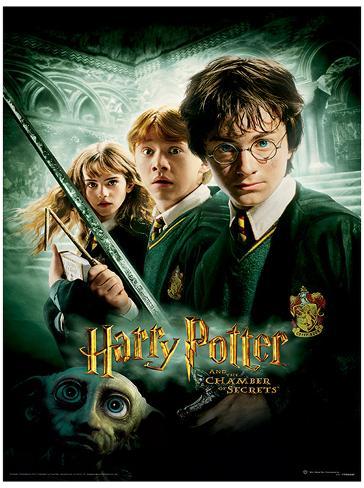
The "Hedwig's Theme" is a leitmotif composed by John Williams for the film of Harry Potter and the Philosopher's Stone. It is better known for being the main theme of every Harry Potter film and is iconic for the wizarding world in general.
Hedwig's Theme was not a stand-alone track to begin with. It was featured as a tune in the track "Prologue" for Harry Potter and the Philosopher's Stone, before being played in the end credits. The theme was very well received and was interpolated in every Harry Potter film score by subsequent composers, such as Patrick Doyle, Nicholas Hooper, and Alexandre Desplat. It is also featured in the score to the last four Harry Potter video games composed by James Hannigan.
Hedwig's Theme has achieved significant pop culture status, featuring in ring tones, trailer music and other forms of multimedia. Most recently, it featured over the title of Fantastic Beasts and Where to Find Them (film), which indicates that it will stay the main theme of J.K. Rowling's Wizarding World.
[video width="640" height="360" mp4="https://www.easypianoonline.com/wp-content/uploads/2019/03/Hedwigs-Theme-from-Harry-Potter.mp4"][/video]
BBC's Proms Hedwig's Theme Song from Harry Potter

[xyz-ihs snippet="NavigationLinksBlock-Common"]
Polovetzian Dance No.17
from opera Prince Igor
by Alexander Borodin
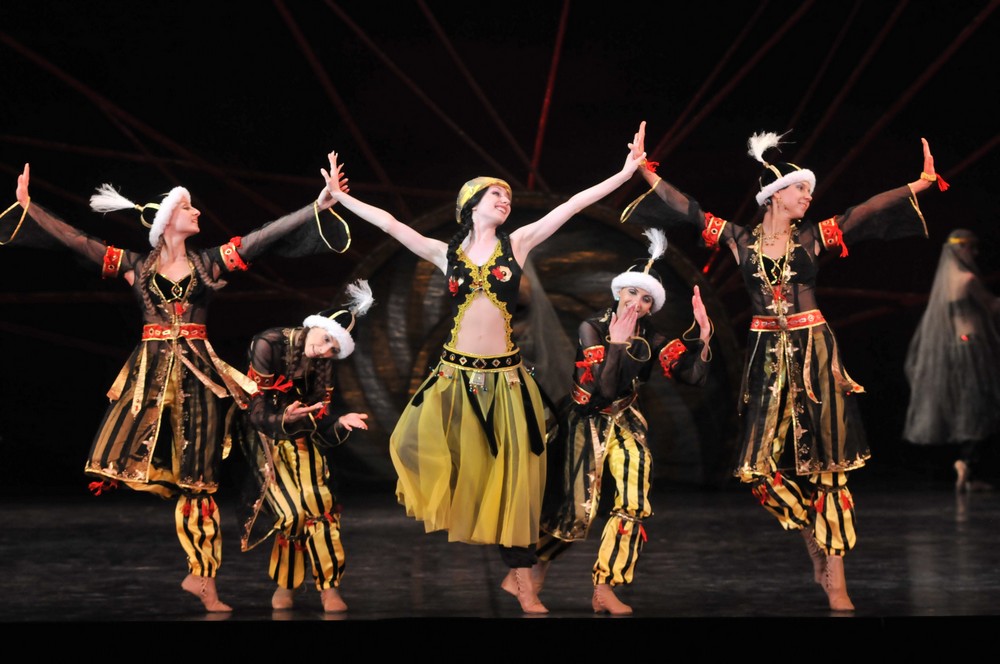
The "Polovetzian Dances, or Polovtsian Dances, or Polovtsian Dances (Russian: Половецкие пляски, tr. Polovetskie plyaski from the Russian "Polovtsy"" — the name given to the Kipchaks and Cumans by the Rus' people) form an exotic scene at the end of act 2 of Alexander Borodin's opera Prince Igor.
Prince Igor (Russian: Князь Игорь, Knyaz' Igor') is an opera in four acts with a prologue.
The composer adapted the libretto from the East Slavic epic The Lay of Igor's Host, which recounts the campaign of Russian prince Igor Svyatoslavich against the invading Polovtsian tribes in 1185. The opera was left unfinished upon the composer's death in 1887 and was edited and completed by Nikolai Rimsky-Korsakov and Alexander Glazunov. It was first performed in St. Petersburg, Russia, in 1890.
[video width="640" height="360" mp4="https://www.easypianoonline.com/wp-content/uploads/2019/04/Polovstian_Dances_Borod_Prince_Igor_1.mp4"][/video]
Conducted by Gergiev with the Kirov (Mariyinksky) Opera Company
The text of the first stanza of this particular section in the opera is given below.
Lyrics
Половецкие пляски
Невольницы:
Улетай на крыльях ветра
Ты в край родной, родная песня наша,
Туда, где мы тебя свободно пели,
Где было так привольно нам с тобою.
Там, под знойным небом,
Негой воздух полон,
Там под говор моря
Дремлют горы в облаках;
Там так ярко солнце светит,
Родные горы светом заливая,
В долинах пышно розы расцветают,
И соловьи поют в лесах зеленых,
И сладкий виноград растет.
Там тебе привольней, песня,
Ты туда и улетай.
Половцы:
Пойте песни славы хану! Пой!
Славьте силу, дочесть хана! Славь!
Славен хан! Хан!
Славен он, хан наш!
Блеском славы
Солнцу равен хан!
Нету равных славой хану! Нет!
Чаги хана славят хана.
Хана своего.
Lyrics (Transliteration)
Nevolnitsy:
Uletay na krylyakh vetra
Ty v kraj rodnoy, rodnaya pesnya nasha,
Tuda, gde my tebya svobodno peli,
Gde bylo tak privolno nam s tobyu
Tam, pod znoynym nebom,
Negoy vozdukh polon,
Tam pod govor morya
Dremlut gory v oblakakh;
Tam tak yarko solntse svetit,
Rodnyye gory svetom zalivaya,
V dolinakh pyshno rozy rastsvetayut,
I solovyi poyut v lesakh zelyonykh,
I sladkiy vinograd rastyot.
Tam tebe privolney, pesnya,
Ty tuda i uletay.
Polovtsy
Poyte pesni slavy khanu! Poy!
Slav'te silu, dochest' khana! Slav'!
Slaven khan! Khan!
Slaven on, khan nash!
Bleskom slavy
Solntsu raven khan!
Nyetu ravnykh slavoy khanu! Nyet!
Chagi khana slavyat khana.
Khana svoyego.
Lyrics (English translation)
Slavewomen:
Fly on the wings of the wind
To our native land, dear song of ours,
There, where we have sung you at liberty,
Where we felt so free in singing you.
There, under the hot sky,
The air is full of bliss,
There to the sound of the sea
The mountains doze in the clouds;
There the sun shines so brightly,
Bathing the native mountains in light,
Splendid roses blossom in the valleys,
And nightingales sing in the green forests.
And sweet grapes grow.
You are free there, song,
Fly home,
Polovtsians
Sing songs of praise to the Khan! Sing!
Praise the power and valor of the Khan!
Praise the glorious Khan!
He is glorious, our Khan!
In the brilliance of his glory,
The Khan is equal to the sun!
There is none equal to the Khan in glory, none!
The Khan female slaves praise the Khan,
Their Khan!
The English translation of the remaining is:
Konchak [the Khan]
Do you see the captives
From the distant sea;
Do you see my beauties,
From beyond the Caspian Sea?
Oh, tell me, friend,
Tell me just one word:
If you want to,
I will give you anyone of them.
Polovtsians
Sing songs of praise to the Khan! Sing!
Praised be his generosity, praised be his mercy!
Praise him!
To his enemies the Khan is merciless
He, our Khan!
Who may equal the Khan in glory, who?
In the brilliance of his glory,
He is equal to the sun!
Our Khan, Khan Konchak, is equal
In glory to his forefathers!
The terrible Khan Konchak is equal
In glory to his forefathers!
Glorious is our Khan Konchak!
Glory, glory!
All the Slaves
(Repeats the opening stanza)
Polovtsians
Our Khan, Khan Konchak, is equal
In glory to his forefathers!
The grim Khan Konchak is equal
In glory to his forefathers!
Glory, glory to Khan Konchak!
Khan Konchak!
With your dancing entertain the Khan,
Dance to entertain the Khan, slaves!
Your Khan!
Dance to entertain the Khan, slaves!
Your Khan!
With your dancing entertain the Khan!
Entertain with dancing!
Our Khan Konchak!

[xyz-ihs snippet="NavigationLinksBlock-Common"]
Darth Vader's Theme
(Imperial March)
from Star Wars
by John Williams
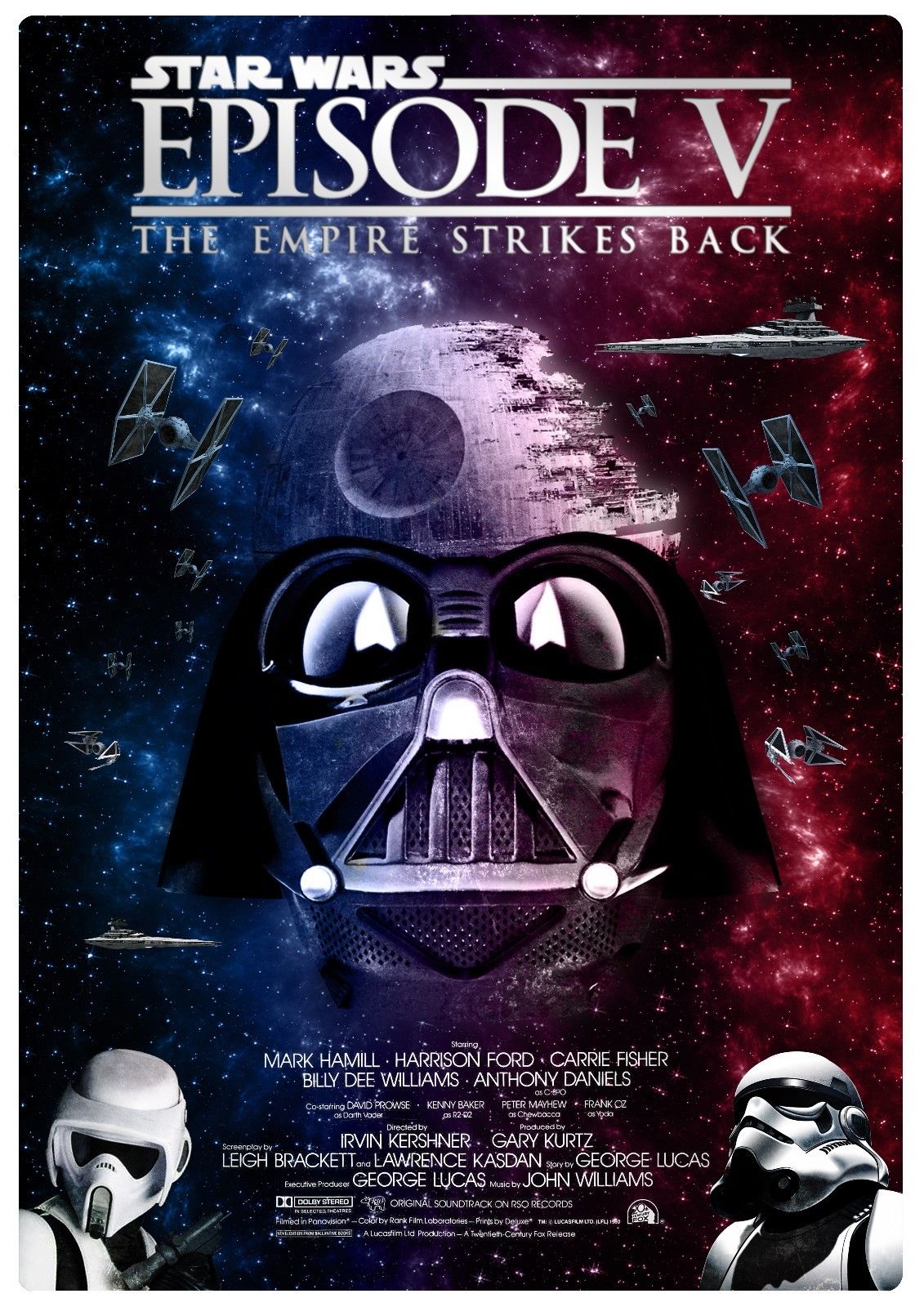
The "Darth Vader's Theme (Imperial March)"is a musical theme present in the Star Wars franchise. It was composed by John Williams for the film The Empire Strikes Back. Together with "Yoda's Theme", "The Imperial March" was premiered on April 29, 1980, three weeks before the opening of the film, on the occasion of John Williams' first concert as official conductor-in-residence of the Boston Pops Orchestra." One of the best known symphonic movie themes, it is an example of a leitmotif, a recurrent theme associated with characters or events in a drama.
[video width="640" height="360" mp4="https://www.easypianoonline.com/wp-content/uploads/2019/03/DarthVadersTheme.mp4"][/video]
More tutorials for music by John Williams:


[xyz-ihs snippet="NavigationLinksBlock-Common"]
Christmas Time is Here
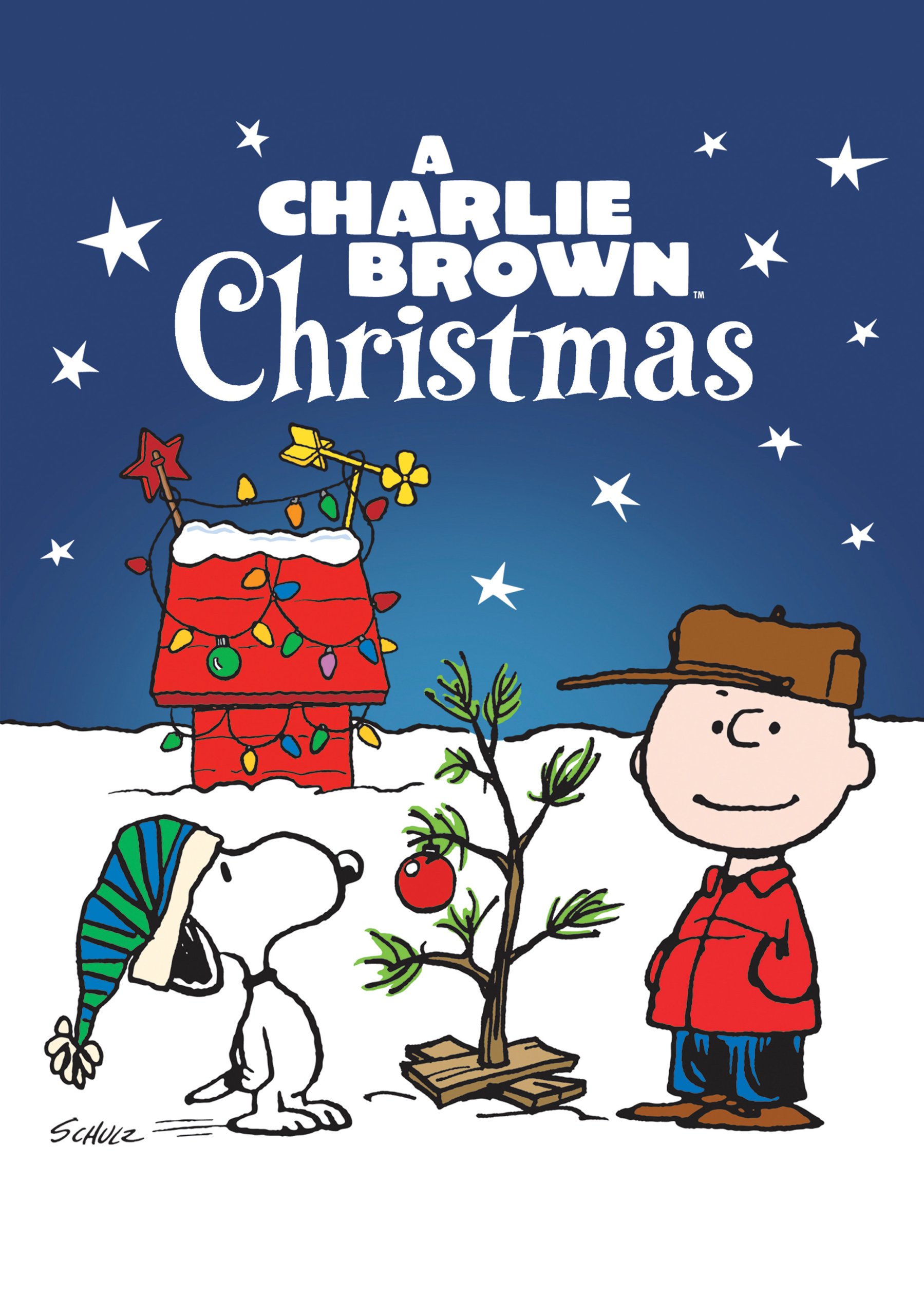
The "Christmas Time is Here" is the opening song from A Charlie Brown Christmas, written by Lee Mendelson and Vince Guaraldi.
Sung by the choir of St. Paul's Episcopal Church, it is heard as Charlie Brown and Linus join the rest of the Peanuts gang in ice skating on the frozen pond. Two versions of it appear on the special's soundtrack album - the vocal version as heard at the beginning of the special, and a six-minute instrumental version which appears as background music during the special. The instrumental version was later used, rearranged by David Benoit, in It's Christmastime Again, Charlie Brown and I Want a Dog for Christmas, Charlie Brown.
[video width="640" height="360" mp4="https://www.easypianoonline.com/wp-content/uploads/2018/12/ChristmasTimeIsHere.mp4"][/video]
Lyrics
Happiness and cheer
Fun for all that children call
Their favorite time of the year
Snowflakes in the air
Carols everywhere
Olden times and ancient rhymes
Of love and dreams to share
Sleigh bells in the air
Beauty everywhere
Yuletide by the fireside
And joyful memories there
Christmas time is here
We'll be drawing near
Oh, that we could always see
Such spirit through the year
Oh, that we could always see
Such spirit through the year
Songwriters: Lee Mendelson / Vince Guaraldi

[xyz-ihs snippet="NavigationLinksBlock-Common"]
Roses From the South
(Rosen aus dem Süden), Op.388
by Johann Strauss Jr.
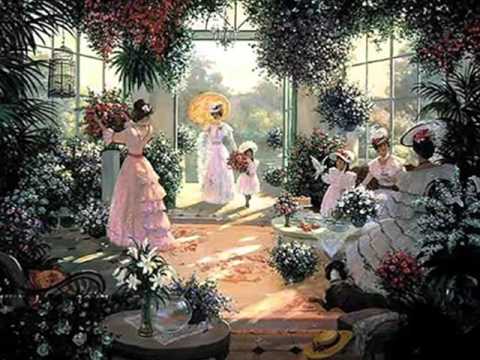
The "Roses From the South (Rosen aus dem Süden), Op.388" is a waltz medley composed by Johann Strauss Jr. in 1880 with its themes drawn from the operetta Das Spitzentuch der Königin (The Queen's Lace Handkerchief) inspired by a novel by Heinrich Bohrmann-Riegen.
The waltz was first performed at the regular Sunday concerts of the Strauss Orchestra conducted by Eduard Strauss on 7 November 1880 at the Musikverein in Vienna. Its themes drawn from the operetta are the act 1 "Trüffel-Couplet" and the act 2 romance "Wo die wilde Rose erblüht" ("Where the Wild Rose Blossoms"). The act 2 romance most certainly inspired the title of this waltz.
The waltz ranks among the "Waltz King's" magnificent works and is still regularly performed today at the Vienna Philharmonic's New Year's Concert. The general mood of the piece is rather pensive but the final moments of the piece are utter joy and sparkling with Strauss happier tunes.
Fans of Star Trek will recognize "Roses from the South" as the waltz Trelane has Uhura play in "The Squire of Gothos".
The song is also used in the Dancing with the Stars videogame for PlayStation 2, in the carnival sequence of "Sunrise: A Song of Two Humans," and finally in "Sophie's Choice," when Sophie is asked for her hand in marriage.
[video width="640" height="360" mp4="https://www.easypianoonline.com/wp-content/uploads/2019/03/RosesFromtheSouthWaltz.mp4"][/video]
André Rieu - Roses From the South (Waltz) - Johann Strauss Jr.

[xyz-ihs snippet="NavigationLinksBlock-Common"]
Love Me Tender
by Elvis Presley
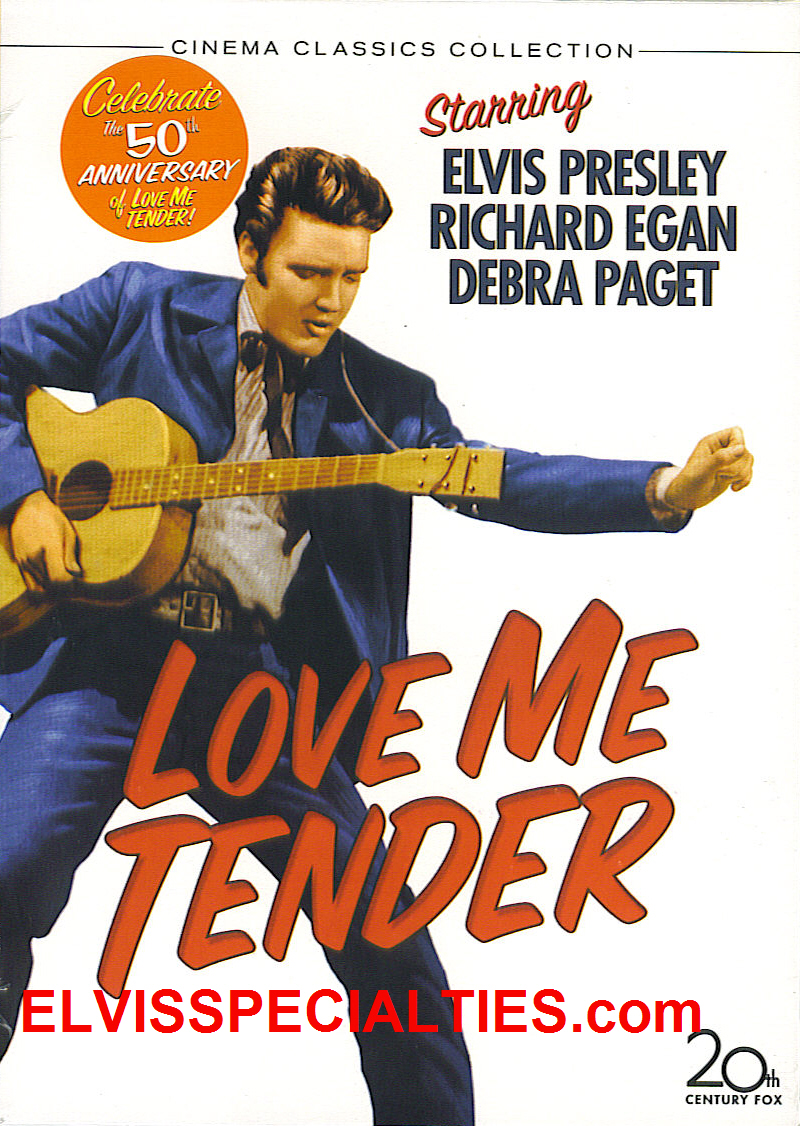
The "Love Me Tender" is a 1956 song recorded by Elvis Presley and published by Elvis Presley Music from the 20th Century Fox film of the same name. The words and music are credited to Ken Darby under the pseudonym "Vera Matson", the name of his wife, and Elvis Presley. The RCA Victor recording by Elvis Presley was no. 1 on both the Billboard and Cashbox charts in 1956.
The song was adapted from the tune of "Aura Lee", a sentimental Civil War ballad.
The song is also featured in many other films such as FM, Touched By Love, This is Elvis, Porky's Revenge, Wild at Heart, Die Hard 2, Honeymoon in Vegas, Backbeat, Gaudi Afternoon, Machine Gun Molly, The Princess Diaries 2: Royal Engagement, William Eggleston in the Real World, California Dreamin', Love in Space, Devil's Due, Just Before I Go, and 90 Minutes in Heaven.
[video width="640" height="360" mp4="https://www.easypianoonline.com/wp-content/uploads/2019/03/LoveMeTenderElvisPresley.mp4"][/video]
Lyrics
Love me tender, love me sweet
Never let me go
You have made my life complete
And I love you so
Love me tender, love me true
All my dreams fulfill
For my darling I love you
And I always will
Love me tender, love me long
Take me to your heart
For it's there that I belong
And will never part
Love me tender, love me true
All my dreams fulfill
For my darling I love you
And I always will
Love me tender, love me dear
Tell me you are mine
I'll be yours through all the years
'Til the end of time
Love me tender, love me true
All my dreams fulfill
For my darling I love you
And I always will
Songwriters: Elvis Presley / Vera Matson

[xyz-ihs snippet="NavigationLinksBlock-Common"]
Gymnopédie No.1
by Erik Satie
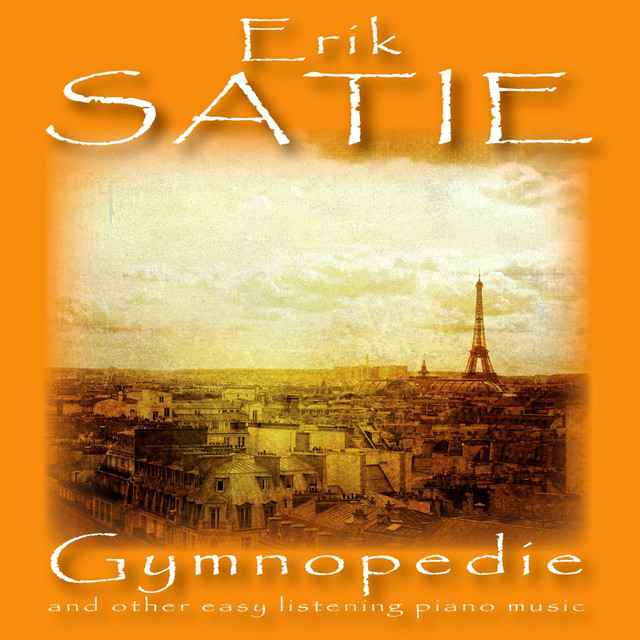
The "Gymnopédies", published in Paris starting in 1888, are three piano compositions written by French composer and pianist Erik Satie.
The work's unusual title comes from the French form of gymnopaedia, the ancient Greek word for an annual festival where young men danced naked — or perhaps simply unarmed. The source of the title has been a subject of debate. Satie's friend Roland-Manuel and Satie himself maintained that he adopted it after reading Gustave Flaubert's novel Salammbô, while others see a poem by J. P. Contamine de Latour as the source of Satie's inspiration, since the first gymnopédie was published in the magazine La Musique des familles in the summer of 1888 together with an excerpt of Latour's poem Les Antiques, where the term appears.
Ruisselait en flots d'or sur la dalle polie
Où les atomes d'ambre au feu se miroitant
Mêlaient leur sarabande à la gymnopédie
Slanting and shadow-cutting a bursting stream
Trickled in gusts of gold on the shiny flagstone
Where the amber atoms in the fire gleaming
Mingled their sarabande with the gymnopaedia.
However, it remains uncertain whether the poem was composed before the music. Satie may have picked up the term from a dictionary such as Dominique Mondo's Dictionnaire de Musique, where gymnopédie is defined as a "nude dance, accompanied by song, which youthful Spartan maidens danced on specific occasions", following a similar definition from Jean-Jacques Rousseau's Dictionnaire de Musique.
Later in 1888, the third Gymnopédie was published. The second Gymnopédie did not appear until 7 years later, and its impending publication was announced in several editions of the Chat Noir and Auberge du Clou magazines.
Puvis de Chavannes' symbolist paintings may have been an inspiration for the atmosphere Satie wanted to evoke with his Gymnopédies.
[video width="640" height="360" mp4="https://www.easypianoonline.com/wp-content/uploads/2020/12/Gymnopedie-No-1-Erik-Satie.mp4"]








































